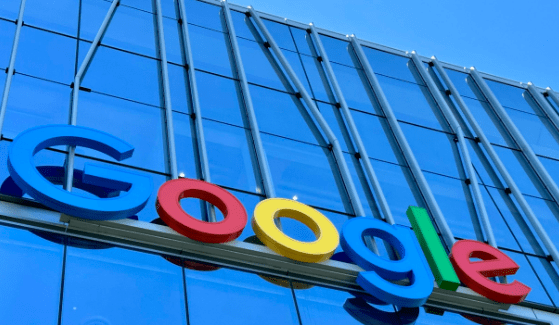Google has issued a warning that the UK risks losing its position in the global artificial intelligence (AI) race unless the government takes action. They suggest that the government should build more data centers and change laws to allow tech companies to use copyrighted materials in training AI models.
UK Lags in AI Readiness
According to research, the UK is ranked seventh on a global AI readiness index, which evaluates a country’s ability to handle data and infrastructure needed for AI development. Although this ranking is decent, Google believes that the UK could perform much better with stronger government support.
Debbie Weinstein, Google’s managing director in the UK, emphasized that the country has great potential in the AI field but needs to take proactive steps to remain competitive. “We have a lot of advantages and a long history of leadership in AI, but if we don’t take action soon, we could be left behind,” she said.

AI Investment Boom
AI is experiencing an investment boom around the world. Breakthroughs in technology, such as the development of ChatGPT by OpenAI, have led to significant attention and funding for AI projects. Google has also contributed to the AI boom with its own AI model called Gemini.
Despite this global focus on AI, the UK government, led by Prime Minister Keir Starmer, has been scaling back its own AI projects due to budget constraints. Earlier this year, the government decided not to fund two key projects: an £800 million exascale supercomputer and a £500 million AI Research Resource. These were seen as important investments for AI research, but the government chose to cut them due to financial limitations.
Weinstein expressed hope that the government’s upcoming “AI action plan,” led by tech entrepreneur Matt Clifford, will provide a clear and comprehensive strategy for AI investment in the UK.
Google’s Recommendations
Google has outlined several recommendations for the UK government in a document titled “Unlocking the UK’s AI Potential.” This report includes several key suggestions that Google believes are necessary to keep the UK competitive in the AI race:
- National Research Cloud: Google proposes the creation of a publicly funded “national research cloud.” This would provide startups and academic researchers with access to the computing power and data they need to develop AI models. AI models like ChatGPT require vast amounts of data and powerful computers to function. A national research cloud would help small companies and universities access these resources, which are often too expensive for them to acquire on their own.
- More Data Centers: Another recommendation is to build more data centers across the country. Data centers are essential for storing and processing the massive amounts of information needed to train AI systems. According to Google, the UK is struggling to attract data center investments compared to other countries.
- AI Skills Training: Google also calls for the creation of a national skills service to help workers adapt to the AI revolution. As AI becomes more integrated into everyday life, people will need new skills to use it effectively. This would involve training programs and educational initiatives to help the workforce stay up-to-date with AI technology.
- Changes to Copyright Law: One of the most controversial points in Google’s report is its call for changes to UK copyright laws. Specifically, they want to make it easier for AI models to be trained using copyrighted material, such as news articles, books, and academic papers.
AI models like ChatGPT are “trained” by analyzing billions of words and phrases from online sources. This helps them understand how to respond to prompts. Google argues that copyright laws need to be relaxed to allow for text and data mining (TDM). TDM is a process where large amounts of copyrighted material are copied for non-commercial purposes, like academic research.

While the UK government had previously considered allowing TDM for commercial purposes, they abandoned the plan in 2024 after concerns were raised by news publishers and the creative industries. Google believes that revisiting this decision is crucial to speeding up AI development.
- Support for Innovation: Finally, Google supports the current regulatory framework in the UK, which oversees AI development through public regulators like the Competition and Markets Authority (CMA) and the Information Commissioner’s Office (ICO). They encourage the government to stick with this system instead of creating new, possibly more restrictive regulations.
AI Safety and Public Trust
The UK government has been working on drafting a new AI bill that would focus on safety and trust in AI development. There have been talks about making AI model testing agreements between tech companies and the government legally binding. The government is also planning to establish the UK’s AI Safety Institute, an independent body that would oversee AI safety regulations.
A government spokesperson said, “Our AI opportunities action plan, led by Matt Clifford, will ensure that we have the right infrastructure, skills, and data access to unlock AI’s full potential for businesses and public services. At the same time, we need to make sure AI develops safely to strengthen public trust.”








